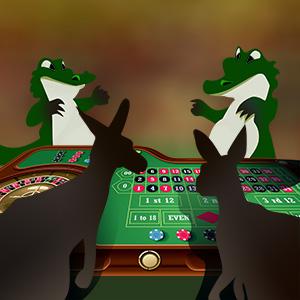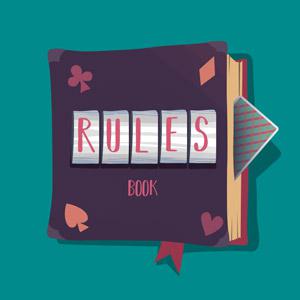If you’re a frequent gambler (particularly online), you may often hear or see the terms ‘Gambling Commission’ or ‘Gaming Control Board’. You can probably take a wild guess about what these mean and who these entities are. But we decided to look at them in more detail to help gamblers gain a better understanding of how gambling is regulated. Who are the gambling regulators, and why there are restrictions for certain games and countries? Read on to find out how we came to adopt these boards and appointed committees in each part of the world.
What is a Gambling Regulator?
First of all, there are multiple different gambling regulators across the globe; particularly when it comes to the U.S. Some countries have multiple gaming authorities which are non-departmental public bodies to their own government. These can include everything from generalized control boards or commissions, racing and Parimutuel commissions, lottery corporations, divisions of consumer affairs or a gaming board of advisors. Each one serves its own purpose in regulating and supervising the gambling laws for that particular country, region or state.
How Did They First Come About?
The first federally recognized gaming commission dates back to around 1988, when the Native Americans established the Indian Gaming Regulatory Act. Native American tribes have authority over the federal lands granted to them. Tribes may even operate casinos inside states which prohibit gambling. Which is why they require such a close relationship with the state governments. It’s also why they have so much jurisdiction when it comes to operating certain classes of games as well. These “Tribal-State Compacts” means that the state receive a large chunk of revenue from the tribal-owned casinos. In exchange, the tribe maintains exclusive rights to offer games, and territorial advantages over other casino operators.
As more and more countries adopted new gambling laws and lowered the restrictions in the years that followed, this naturally attracted a wider base of players. But, as with anything that grows in popularity, so do the problems associated with it. This meant that casinos both online and offline would now have to address challenges such as underage gambling, addictions, theft, fraud, and a string of other problems which would be very difficult to manage if it weren’t for the gaming authorities. When these issues became more and more apparent, other countries began setting up their own gaming control boards.
UK Gambling Regulators
The UK jumped on the bandwagon in 2005, when they established the Gambling Act and assumed full power. This isn’t surprising considering it was the British colonies which were the ones to first implement national lotteries for raising extra sources of revenue in the 18th and 19th centuries. The legislation was set to regulate everything from arcade games, slots, bingo and lotteries to remote gaming online.
Other countries such as China and Japan have only legalized certain forms of gambling in the last few years, but most are actually banned. Macau is considered the “gambling capital of the world” and China were the first to invent playing cards. But their laws are still heavily regulated when it comes to both online casinos and land-based venues, primarily due to illegal gambling in the country. The same laws still apply to Hong Kong. But because it’s still part of English common law, the approach to certain forms of gambling is more liberal.

In Australia, gambling is a major health issue. Almost 80,000-160,000 experience some kind of gambling problem. There are regulatory bodies under the Commonwealth for each continent. These include the ACT Gambling and Racing Commission, Independent Gaming Authority, Department of Racing, Gaming and Liquor etc.
Pokies are the biggest attraction for Australian gamblers, and they are also big fans of lotteries too. All of which are owned by state government and private sector companies.
What Are Gaming Commissions Responsible For?
We’ve established what they are and some of the countries which have them. So let’s talk about what they actually do. First and foremost, the objective for these authorities is to eliminate illegal gambling operations and crime, on top of providing protection for the vulnerable. This doesn’t just include individual players and consumers, but also shielding the casinos themselves.
Gaming commissions are responsible for issuing licenses to vendors. They also advise the governments on gambling-related issues, and liaise with police to combat suspicious and illegal gambling activities. Their remit covers practically everything to do with gambling in that area of the world. They implement new laws and practices, issue fines and penalties, and provide services and anonymous disclosure for problem gamblers. In addition, they also conduct surveys and research on gambling-related topics, and investigate suspicious licensees. They even dictate the types of and classes of games which each establishment is permitted to operate.
What Happens When An Operator Displays Unlawful Behavior?

Gambling Commissions carry out assessments of every gambling operator, bookmaker, or betting service each year. If it comes to light that the company has not been following standard practices or has done something unlawful, it’s not just a slap on the wrist they can expect. They will either face some kind of financial punishment, dismissal, or be instructed to raise their standards.
There are several things that casinos can do wrong. These include failing to prevent money laundering, producing misleading advertisements, delaying a player from withdrawing their winnings, or simply offering a game which is otherwise not permitted. This results in some serious consequences from the gaming authorities, including heavy fines and possible jail time for those responsible. One of the best examples of the gaming commission’s wrath towards unlawful operators was in the case of 32Red. The player received a £2million fine on the spot for failing to acknowledge and support a problem gambler. He had deposited £758,000 with the company over the course of 2 years. But the casino failed to check whether he could afford the bets he was placing, despite several previous regulatory rulings.
Employee Misconduct
Another more recent example is the Steve Wynn sexual misconduct case. Offenses like this usually fall to the higher courts regardless of the industry. But the former CEO’s received over $50m in fines collectively within the last 2 months. And all of these fines were issued by the relevant gaming commissions. If it weren’t for the fact that Wynn Resorts is one of the world’s largest casino operators in the world who provide a mammoth chunk of revenue to the states each year – they no doubt would have lost every single one of their gaming licenses.
The thing is… for a company of that scale, we are pretty much talking pocket change. However, for smaller online casinos and betting shops, a fine for even a fraction of the size above could have detrimental effects on that business’s future operations, prospects, and of course their reputation.
What About When the Commissions Themselves Face Criticism?
Believe it or not, the commissions and boards have also had their fair share of controversy in the past. The Ontario Lottery and Gaming Corporation had to review their practices a few times over the course of the last decade. This was mainly due to incidents involving stolen lottery tickets from convenience store clerks, and the circulation of fraudulent tickets. The OLGC supposedly turned a blind eye to these incidents.
Nobody knows what kind of fine they paid for allowing such events to take place. But they have since mandated new security measures to protect lottery participants and winning customers. This year, the UK Gambling Commission voided all open ante-post bets placed on BetBright’s horse racing games, as well as wagers placed months in advance for the Cheltenham Festival and football season to start in August. The reason was due to BetBright selling their technology to 888.com shortly after the races were due to be held. The takeover company confirmed they would honor the outstanding bets placed by punters prior to the sale. But nothing ever came to fruition from their side.
In Chile, the head of the Chilean Gaming Control Board (SJC) was forced to resign from his position by Chile’s president in 2016, after controversy arose over licensing a random casino. The incident followed a brutal 2-year bidding process by another eligible operator. According to sources, the casino group’s proposal for the license (for which they were more than a suitable fit) had been rejected on 3 separate occasions. The media turmoil caused the license to be later awarded to the novice operator elsewhere in Marina Del Sol.
Final Thoughts
Many people are quick to badmouth regulatory commissions. But the truth of the matter is: we would be far worse off if they didn’t exist at all. Without them, it would pave the way for illegal casinos to target innocent patrons and dupe them out of their hard earned cash. Because all legit casinos online and offline must be officially licensed by a regulator, it makes these rogue casinos much easier to spot. Gamblers and consumers have reached a point where they will no longer tolerate any sort of dodgy behavior. It’s mainly thanks to the gambling commissions and boards that we can protect ourselves from these sites. So, next time you go to play your favorite casino games online for real money, remember it’s because of these guys that you’re able to do it safely and have fun in the first place!




